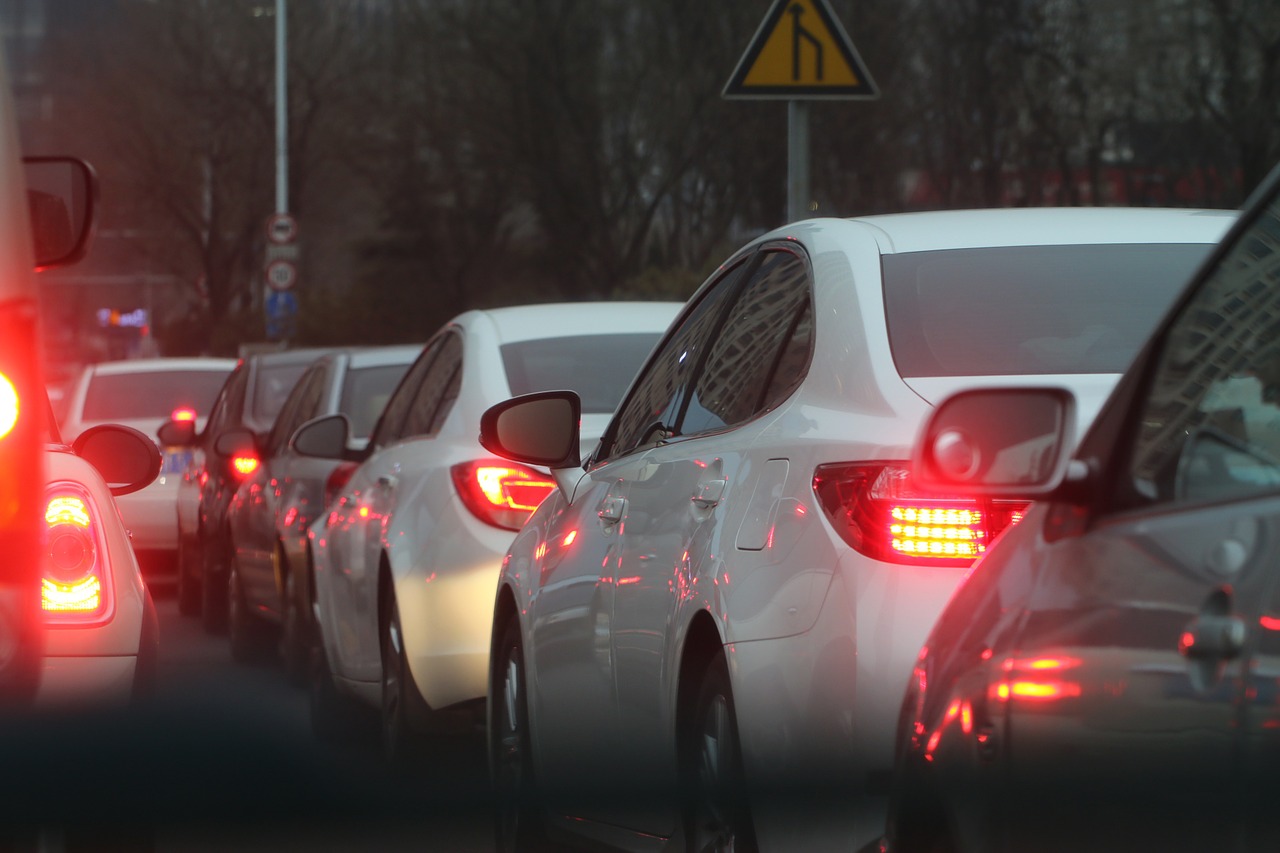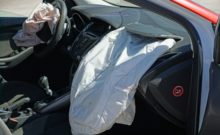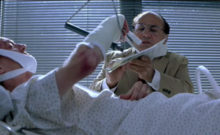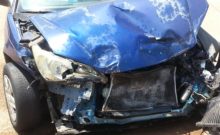- Address any medical emergencies
As we all know, car wreck injuries can range from minor to tragic. The most important thing you can do if you are involved in a crash is to make sure everyone who needs medical treatment receives it as soon as possible. Remember that sometimes serious injuries can result from relatively minor collisions. Only several months ago a Las Vegas woman died two hours after what was thought to be a minor crash when a rib fractured and punctured her heart. Neck and back injuries can be especially delicate—don’t attempt to move someone unless they are in immediate danger, such as a car fire. Call 911, and wait for trained first responders to arrive on scene. Do not hesitate to have an ambulance take you to the emergency room if needed, such as if you are having neck pain.
- Leave your car where it is, as long as it is safe to do so
Sometimes, the positioning of the vehicle after the crash provides the best evidence of what actually happened (i.e. who was at fault). Of course, safety is the priority. If you have to move your car to be safe, do it. If your car can safely remain where it stopped after the crash, leave it there until the police arrive and tell you to move it, even if it is going to cause some inconvenience to other drivers. Before moving your car, take photographs – see point 6 below for more on photographs.
- Keep a level head
A car wreck can be aggravating. It can give you a surge of adrenaline. You may be worried about the safety of your passengers, the damage to your car, and the inconvenience of the whole situation. But don’t lose your head. It will do you no good if the police arrive and you are shouting or if they have to separate you from other people because they are not sure how you will react. Try to keep your emotions in check. You need to be thinking clearly so you can communicate with the police and follow the rest of these steps.
- Contact the police—call 911
You will be much better off waiting for the police to arrive and making a calm, deliberate statement about the facts of what happened. Be as honest and accurate as you can about what happened when you talk to the police. If you believe the other driver made a mistake, explain why to the officer. If you saw the other driver using a cell phone before the crash, tell the officer. Be sure to also tell the officer of any pain or discomfort you are experiencing. If the officer asks if you’re okay, be honest. That includes telling the officer if you are feeling pain.
Some people are surprised when no one calls 911 because everyone assumed someone else would make the call. Be the one to dial the number! When officers arrive, make sure they create an official report. They may also issue a citation if they have an opinion about who was at fault. The report and any citations are typically helpful when resolving an insurance claim. Within a few days of the crash, request a copy of the police report by contacting the police department.
- Don’t admit fault, unless fault is clear
For whatever reason, some of us are hard-wired to apologize and admit fault even if we don’t really think we were at fault. Some drivers are surprised when their insurance claims are rejected because they admitted fault right after the accident.
As stated above, your first job after a crash is to make sure everyone is okay. Even if you might have been partially at fault, you still might be entitled to a partial recovery if the other driver was also at fault.
What’s more, delaying discussions and accusations of fault can help everyone at the scene remain calm. We’ve all heard the horror stories of road rage. Sometimes people lash out in surprising and violent ways when they feel slighted behind the wheel. You don’t want to be caught up in something like that.
- Exchange information
Even if the police collect information about the other driver, you should do so as well. Remember to ask for their driver license number and insurance information. Write down other information about the other driver’s vehicle such as the license plate number, make, and model. Freely provide your information to the police and the other driver.
- Take photographs, and lots of them
In this day and age, many of us carry smart phones and can easily take photographs. I have heard some attorneys and insurance representatives suggest you keep another camera in the vehicle in case your phone gets damaged in the crash. That’s not the worst idea. Take photographs of ALL the damaged vehicles from every angle. If your vehicle is totaled, it is possible you might not see it again. Even if the insurance company makes its own investigation, it is helpful for you to keep photos to show your attorney or insurance company. Take photographs showing how the cars are positioned, if they haven’t already been moved. Take photographs of any debris in the road. Make sure some of your photographs are not so closely shot that it is impossible to tell where the debris or damage is in relation to its surroundings. Take photographs of the other people involved if feasible.
- Speak with possible witnesses
Bystanders and other drivers may be an important resource in determining liability for an accident. Speak to them right away, and write down their contact information. Otherwise, they might be gone forever. Don’t assume someone else will do it for you. More than a few times I have reviewed a police report where the only information is a witness’s first name, or the witness isn’t listed at all. In one instance, a case turned on whether the light was green or red, and the officer noted that a witness said it was red but did not list any witness information. Even though the driver that hit my client was cited at fault, he contested his fault and that witness was lost to the wind.
- Seek appropriate medical care and legal help
If you are having any aches or pains from the crash, get it checked out. If you were not taken to the emergency room by an ambulance, you should go to an urgent care clinic. Many people do not feel the effects of a crash immediately. Sometimes symptoms are masked by adrenaline. Some symptoms may not manifest for a day or two. I have had several clients who did not feel immediate pain after a crash and later had to undergo surgery to address their injuries. Do the smart thing. If you are having pain, get it checked out. You should also consider hiring a personal injury attorney. For a quick synopsis of why, check our recent blog article: http://www.pricebeckstromlaw.com/2016/09/03/5-reasons-you-should-hire-a-personal-injury-lawyer-in-las-vegas/.







